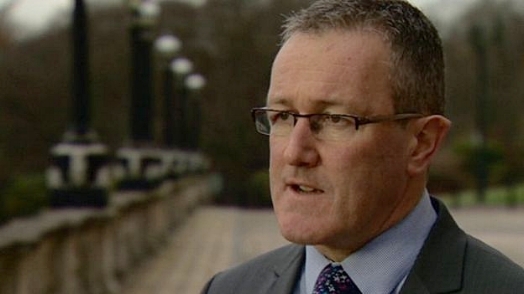How could the massive campaign against water charges in Ireland that commanded support from the majority of it’s citizens, where over 57% of households refused to pay water charges and even recognise Irish Water, eventually boil down to twenty politicians bartering away the clear wish of the Irish people? How could they ignore the elephant in the room?
by Enda Craig and James Quigley
It happened in the Oireachtas Committee on the Future Funding of Domestic Water that started proceedings late 2016 and ended in April 2017. This establishment process was initiated by the government and accepted by the Right2Water leadership and it's five supporting TDs who took part in it. The committee ended with a very iffy final report and an even iffier initial draft one that by the way, prompted the Right2Water TDs to prematurely declare a victory.
Allegiance to party supersedes allegiance to country
It was a clever plot indeed hatched in the murky depths of politician and civil servant land, designed to take the impetus away from the anti water movement and trick us into thinking that they were doing it for our benefit.
The majority of Irish people were supposedly represented on the Committee by maybe ten members including five signed up to Right2Water and five Fianna Fáil members. All of whom at one time or other promised to abolish Irish Water, get rid of water charges and water meters. However, of these ten most had an underlying allegiance to party, self preservation or personal agenda and as a newspaper headline once stated ‘party allegiance trumps allegiance to country’.
Imagine giving carte blanche to these same politiciansto champion the cause of the anti water movement. Pardon us for being cynical but isn’t a politicians' allegiance to party or to their self preservation?
Brendan Ogle, assumed leader of Right2Water Ireland, having said ″we have done our bit, now it is up to the politicians to do theirs″, has come back to haunt us. Mr Ogle indeed did his bit by handing the reins to politicians, and these politician went on to shaft the anti water charges movement.
If these same politicians get their way Irish Water is here to stay, water charges and water meters are on the way, all done in small print and in the interest of the Irish people. Granted, for the time being, charges are couched in an euphemism of ‘only for excessive use’ and metering, well once ‘excessive use’ was accepted then meters are not far behind. Anyway ‘excessive use’ can be worked on and manipulated through time.
Oireachtas draft report ignores the 9.4 Exemption
It's all in the final draft report and the final final report of the Oireachtas committee. What is very alarming about the initial draft report presented by the chairman Mr Pádraig Ó Céidigh in April is the obvious omission of any mention of the River Basin Management Plans or reference to Ireland’s exemption from charging for domestic water as stated in section 9.4 of the Water Framework Directive 2000.
This omission is highly significant giving the fact that Mr Ó Céidigh devoted a whole day to debating what he described as ‘very important matters’ but somehow he did not include them in his report.
What is as significant is the fact that none of the ten supposed anti water charges members on the committee complained about or questioned this omission or lack of protocol. If one believed, as we do, that the River Basin Management Plans are the cornerstone of the Water Framework Directive and that the 9.4 exemption clause is the most important defense Ireland has against the EU Commission insistence on water charges, then surely it should have been in the Oireachtas report and surely any of the five Right2Water members on that committee should have made sure that it was in the draft report.
The Oireachtas committee for all intents and purposes abandoned the Irish Exemption clause that was granted originally in 2000 in paragraph 9.4 of EU Water Framework Directive that states
″4. Member States shall not be in breach of this Directive if they decide in accordance with established practices not to apply the provisions of paragraph 1, second sentence, and for that purpose the relevant provisions of paragraph 2, for a given water-use activity, where this does not compromise the purposes and the achievement of the objectives of this Directive. Member States shall report the reasons for not fully applying paragraph 1, second sentence, in the river basin management plans.″
The hard fought and successful anti water charges campaigns of the ‘70s and 90s’ in Ireland were instrumental in pressurising the Irish government of the day into insisting on the insertion of the 9.4 Exemption clause into the Water Framework Directive. This is why it is known as the 'Irish Exemption'. Now twenty politicians on the Oireachtas committee have for all intents and purposes given it away.







